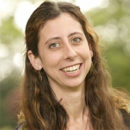We have much more to do and your continued support is needed now more than ever.
Professional Development Starts with Self-Assessment
This article is the third in a series by the National Wildlife Federation EcoLeaders Career Center Fellow, Elizabeth Morgan. Elizabeth will be covering various green career topics in advance of the inaugural NWF EcoCareer Conference, occurring online this February 22 and 23, 2017. Registration is free for members of the EcoLeaders community (also free!).
The Value of Self-Assessment
As someone following a career path driven primarily by making positive change, I am often critical of how effective I am. While I can sometimes be my own worst critic, it is this sense of responsibility that motivates me to continually assess my work and my skills. Self-assessment is a necessary step in personal and professional development because it allows you to develop internal diagnostics, feelings of empowerment, and a sense of control in your life.
There are many methods and tools (both free and paid) to help you evaluate yourself both personally and professionally: surveys and assessments on your strengths, interests, values, personality type, and more that can help you shape a personal and professional development plan, whether that focuses on developing your existing strengths or addressing gaps in your skillset to enhance future employment.
One tool that I recently discovered is a leadership characteristic assessment based on four frames developed by Lee G. Bolman, author and Professor at University of Missouri-Kansas City. The four leadership frames are: structural; human resource; political; and symbolic. You can take the self-reflective leadership quiz for free to assess your areas of strength.
The National Wildlife Federation EcoLeaders Career Center is also developing an individual career planning tool that incorporates self-assessment as an integral first step to clarifying your personal mission and optimal career path. The upcoming EcoCareer Conference will feature a workshop on February 23rd that will go through the tool in detail.
Using Assessment Results
After assessing yourself, identify areas and skills you want to strengthen or improve (whether you are still a student or even if you’ve entered the workforce) and seek out professional development activities to address those areas. Professional development is an ongoing process that helps you continue learning and growing within your desired profession. Activities can be formal or informal — attending workshops, meetings, or conferences to conversations or listening to podcasts.
Continuously learning about your profession keeps you up-to-date and helps you monitor external trends, and it helps you improve yourself in areas identified during your self-evaluations. Here are a few strategies that I’ve used to focus my professional development activities:
1) Joining Associations
After I received a degree in Wildlife Management, I decided to go directly into my master’s program but wasn’t able to find a local wildlife job. I felt that I would lose the wildlife knowledge techniques I had learned, so I got involved with the National Wildlife Federation and joined The Wildlife Society. The Wildlife Society publishes the latest research and news in wildlife management, and it offers professional development courses certifications. (FYI: One of the many fantastic speakers at the upcoming EcoCareer Conference will be Keith A. Norris, Director of Government Affairs & Partnerships of The Wildlife Society.)
In addition to sector-specific development, I joined the Young Nonprofit Professional Network to work on networking skills and other professional development opportunities specifically focused on the nonprofit sector. Joining an association or society within your field is a great start to finding professional development activities.
2) Volunteering
In addition to joining clubs and associations relevant to your interests, many professional development strategies recommend volunteering. (See this list of 10 strategies compiled by U.S. News for more.) I find that this is one of the most satisfying ways to learn or practice a new skill. Idealist or VolunteerMatch are great sites to find volunteer opportunities near you. Meetups are also great opportunities to find a volunteer gig or other individuals who are at the same point in their career as you are.
3) Seeking Expert Advice
Along with finding workshops and extra work experience, you can develop yourself by learning from the experts. There are multiple ways to learn from others: you can seek out people on career paths you aspire to, shadow a colleague, or find a mentor. Depending on what kind of assistance you need you can find experts in your field who would love to tell you about how they got to where they are today and give you advice to succeed.
4) Don’t Forget Soft Skills
 Finally, and perhaps most importantly, focus on developing your “soft” skills – whether that is building your social media profile or getting better at organizing your peers. For me, one of my biggest personal challenges has been time management. I try to squeeze every little activity into one day and find myself being late for important functions because I do not manage my time efficiently. This is something I am aware of and constantly trying to improve. Online tools and smartphone apps have evolved to make syncing across devices and platforms much easier, and this has been a great help to me.
Finally, and perhaps most importantly, focus on developing your “soft” skills – whether that is building your social media profile or getting better at organizing your peers. For me, one of my biggest personal challenges has been time management. I try to squeeze every little activity into one day and find myself being late for important functions because I do not manage my time efficiently. This is something I am aware of and constantly trying to improve. Online tools and smartphone apps have evolved to make syncing across devices and platforms much easier, and this has been a great help to me.
Self-evaluation helps you recognize and build your strengths and focus development on your weaknesses. Although graduation may be around the corner, we should never stop learning or improving yourself to accomplish your career dreams.
Want even more tips for an exciting green career?
Mark Your CalendarDon’t forget to register for NWF’s virtual EcoCareer Conference, February 22 and 23, 2017.























